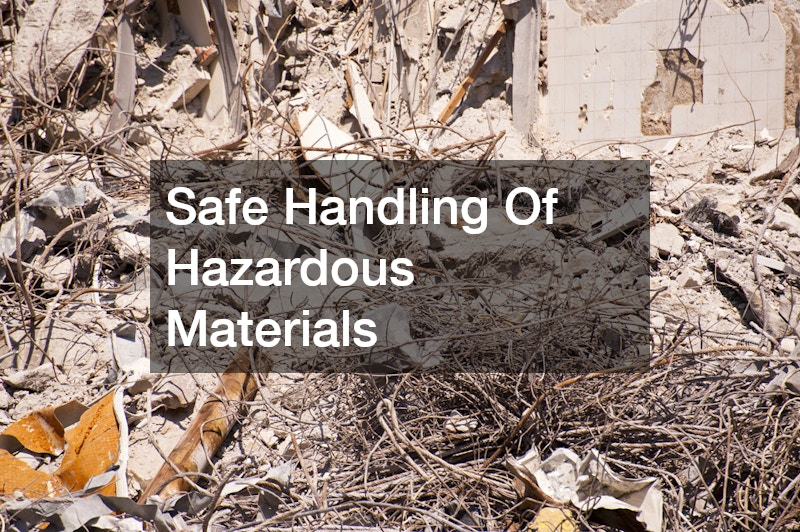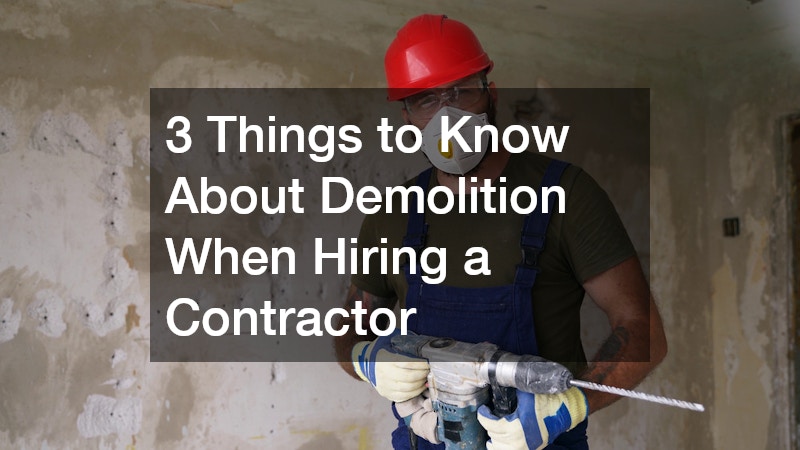Whether you’re clearing land for a new build or removing a damaged structure, demolition is often the first major step in a construction project. Hiring the right contractor is critical. A poor choice can lead to delays, safety hazards and unexpected costs.
Before signing any contracts, here are three essential things to understand about them and what to look for in the professionals you hire.
1. Licences, Insurance And Regulatory Compliance Matter
Demolition may seem straightforward, but it’s heavily regulated in Australia. Contractors must hold the correct licence class as required by the state or territory where the project takes place. These licences ensure that the contractor understands site safety, structural risk and environmental protocols. Without them, the job may be shut down by local authorities or expose property owners to liability.
Reputable contractors will also carry public liability insurance and workers’ compensation. These policies protect you from potential legal or financial consequences if property is damaged or someone is injured during the project. A contractor who cannot produce up-to-date licence and insurance documents should not be considered.
In addition to documentation, contractors should be familiar with state and council regulations. For example, some local councils require a pre-approval or a waste management plan before work begins. Others may have rules around asbestos handling or noise restrictions during certain hours. A knowledgeable contractor will help guide you through these requirements, ensuring the job is done legally and without delay.
2. Safe Handling Of Hazardous Materials Is Non-Negotiable
One of the most common risks in older buildings is the presence of hazardous materials such as asbestos, lead paint or chemical residues. A project must include a proper hazardous materials assessment before any physical work starts.
Asbestos, in particular, is strictly regulated in Australia. It must be identified, reported and removed by licensed professionals under controlled conditions. Even trace amounts of airborne asbestos fibres can pose serious health risks. This is why qualified contractors will partner with licenced asbestos assessors or hygienists to inspect the property beforehand. If asbestos is found, removal will be conducted in line with Work Health and Safety (WHS) codes of practice and environmental guidelines.
It’s important to note that you, as the property owner, are also legally responsible for ensuring asbestos and other hazardous waste are handled correctly. Hiring a contractor who is careless or unqualified could lead to heavy fines or long-term health implications for those on site. Ask your contractor about their plan for managing hazardous materials and ensure it complies with both state legislation and best practice safety standards.
3. Communication, Planning And Cleanup Are Key To A Successful Project
The best contractors will go beyond tearing down walls—they’ll also manage communication, coordinate with trades and oversee cleanup. A quality contract will start by providing a clear scope of work, including what structures will be removed, what will remain intact and what timeframe is expected.
They should also outline the equipment and methods being used. For example, selective demolition may involve hand tools for precise interior work, while a mechanical job may use excavators or wrecking balls for full structural takedown. Dust suppression, noise control and traffic management may also be part of the plan depending on the site’s location.
One of the most overlooked aspects of a job is the post cleanup. This includes hauling waste, recycling salvageable materials and leaving the site level and ready for the next phase. In many cases, materials such as timber, bricks and scrap metal—can be recycled or resold. A good contractor will help you minimise landfill and may even reduce project costs by salvaging reusable elements.
Before you hire, ask your contractor for references from recent clients. Look for signs of reliable communication, professionalism and prompt cleanup. You should also receive a formal contract with pricing, timeline and responsibilities clearly listed. Don’t rely on verbal agreements.
Hiring a contractor isn’t just about knocking things down—it’s about ensuring the entire process is done legally, safely and efficiently. From licences and hazardous materials to timelines and waste disposal, choosing a qualified contractor protects your project and your peace of mind.
Demolition is often the first impression your entire build or renovation will make. With the right team, that first step will set the tone for success.
.

